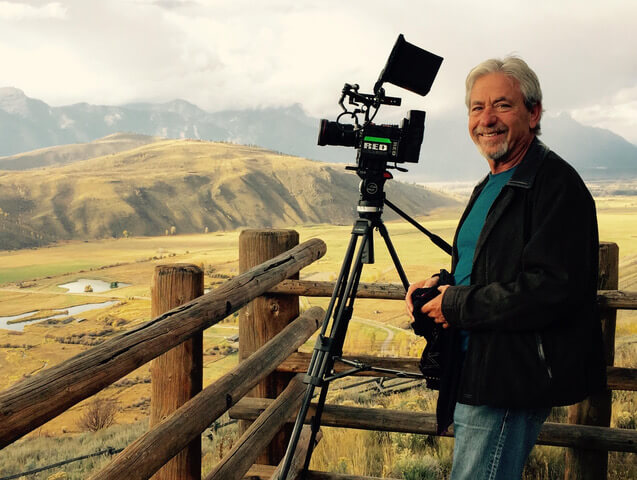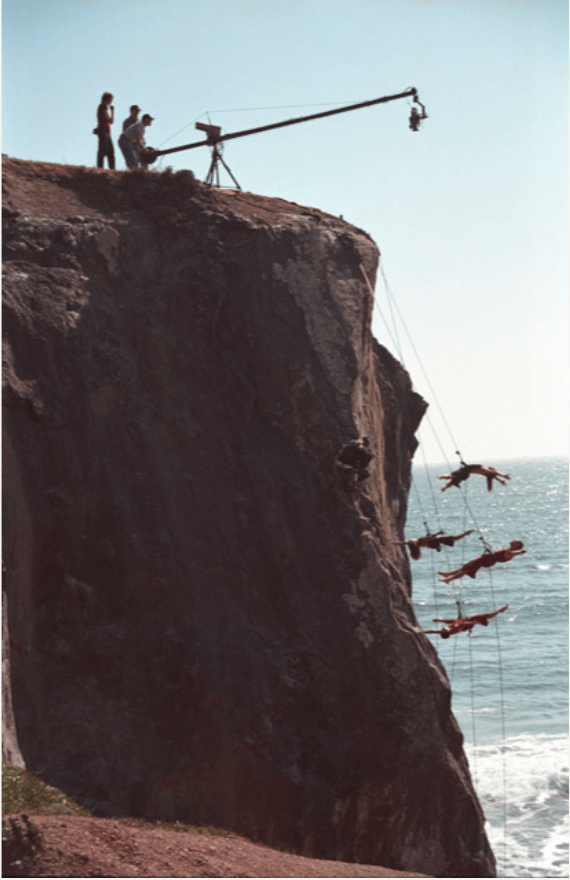Why the filmmaker who launched 1,000 mushroom trips is trying to create a gratitude movement
The ‘Fantastic Fungi’ director, and son of survivors, wants you to appreciate the ‘little things’

Graphic by Angelie Zaslavsky
Louie Schwartzberg grew up with gratitude. His Polish-born parents were Holocaust survivors — his mother survived years in Auschwitz, his father, the Lodz Ghetto and later the camp. They didn’t take anything for granted.
“Living under their roof, I learned to appreciate all the little things in life,” Schwartzberg, 73, said. Fittingly, his career, built on time-lapse nature photography, has blown up the infinitesimal, from the glacial processes that make up the natural world to the tiniest fungi masking a vast underground network.
Schwartzberg’s 2019 documentary Fantastic Fungi, which explores the miraculous qualities of the mushroom kingdom, ignited interest in the medicinal and recreational qualities of mushrooms. For his latest film, Gratitude Revealed, Schwartzberg has gone a bit more abstract.
“If Fantastic Fungi is a journey under the ground, looking at the mycelial network, which is a shared economy where nutrients and information is shared without greed for ecosystems to flourish, I want to take that wisdom from below the ground above the ground,” Schwartzberg, wearing a metal mushroom pendant around his neck, said from his hotel near Columbus Circle in Manhattan.
Gratitude Revealed, he says, is “a journey into the soul of what’s really important,” a free-flowing display made up of over 40 years of footage shot around the world all exploring various themes of gratitude: spiritual, interpersonal and artistic. The documentary interviews thought leaders like Deepak Chopra, sitcom pioneer Norman Lear, blind ice climber Erik Weihenmayer and normal folks like a rug-weaver in Appalachia and a child in a classroom. Crafting the film, which grew out of a viral TEDx talk, into a feature film, Schwartzberg hoped to replicate the feeling of travel.
“You don’t know where you’re gonna go, you don’t know what type of culture or music or visuals you’re going to encounter,” said Schwartzberg. “And the beauty of it is that you learn that we’re all just a different version of each other. If this is a story about brotherhood in New Orleans, it’s a story about brotherhood somewhere else.”
‘I found my voice’

Schwartzberg, who was born and raised in Brooklyn, moved to California for college at UCLA. He was originally a history and political science major, hoping to create change in the spirit of tikkun olam. But in time the campus flared up with anti-war protests and, as a way to document police brutality against demonstrators, he taught himself photography and soon presented it as schoolwork.
“I handed in these photo essays instead of written essays, which was a lot easier for me and I found my voice,” Schwartzberg said.
Soon Schwartzberg began shooting art photography and filming nature. But, he ran into a problem: He only wanted to shoot high-resolution film and it was expensive. As a solution, he retrofitted old cameras to shoot 35 millimeter stock and committed to time lapse, a much slower process, in which it could take around a month to shoot a four minute roll of film.
The result is imagery that revealed nature in hyperspeed and awakened Schwartzberg’s “sense of wonder.” He soon built a business through licensing his work, selling his company Energy Film Library to Getty Images in 1997.
“I’m always looking at the little things in life that make the world go round,” said Schwartzberg, who’s made nature films for Disney and has the Moving Art series on Netflix. “And it kinda goes with fighting with the little guy in terms of social justice.”
In Gratitude Revealed, the little things are moments of connection: the Appalachian weaver realizing her neighbor, riding a tractor, works in rows like her; an impromptu barbecue in New Orleans; klezmer clarinetist David Krakauer paying homage to his ancestors at Eldridge Street Synagogue.
Schwartzberg edited the film during the lockdown, a moment when many were missing their friends and family. Now that many people feel free to gather, he hopes to make it a communal experience in which people can take stock and learn to better appreciate their lives.
“We want to be a movement,” said Schwartzberg, who is inviting communities to screen the film for free and has even paired the film with teaching guides for educators. You can even do a watch party on his website, The Louie Channel.
Can you take mushrooms and watch it?
“Totally,” Schwartzberg said. “Nature is medicine and whether you ingest nature or you look at visuals of nature or you listen to nature, it is a healing modality that has been proven by science.”
Schwartzberg is presenting the film June 16 at Symphony Space in Manhattan for free and with live music. More information can be found here.

















